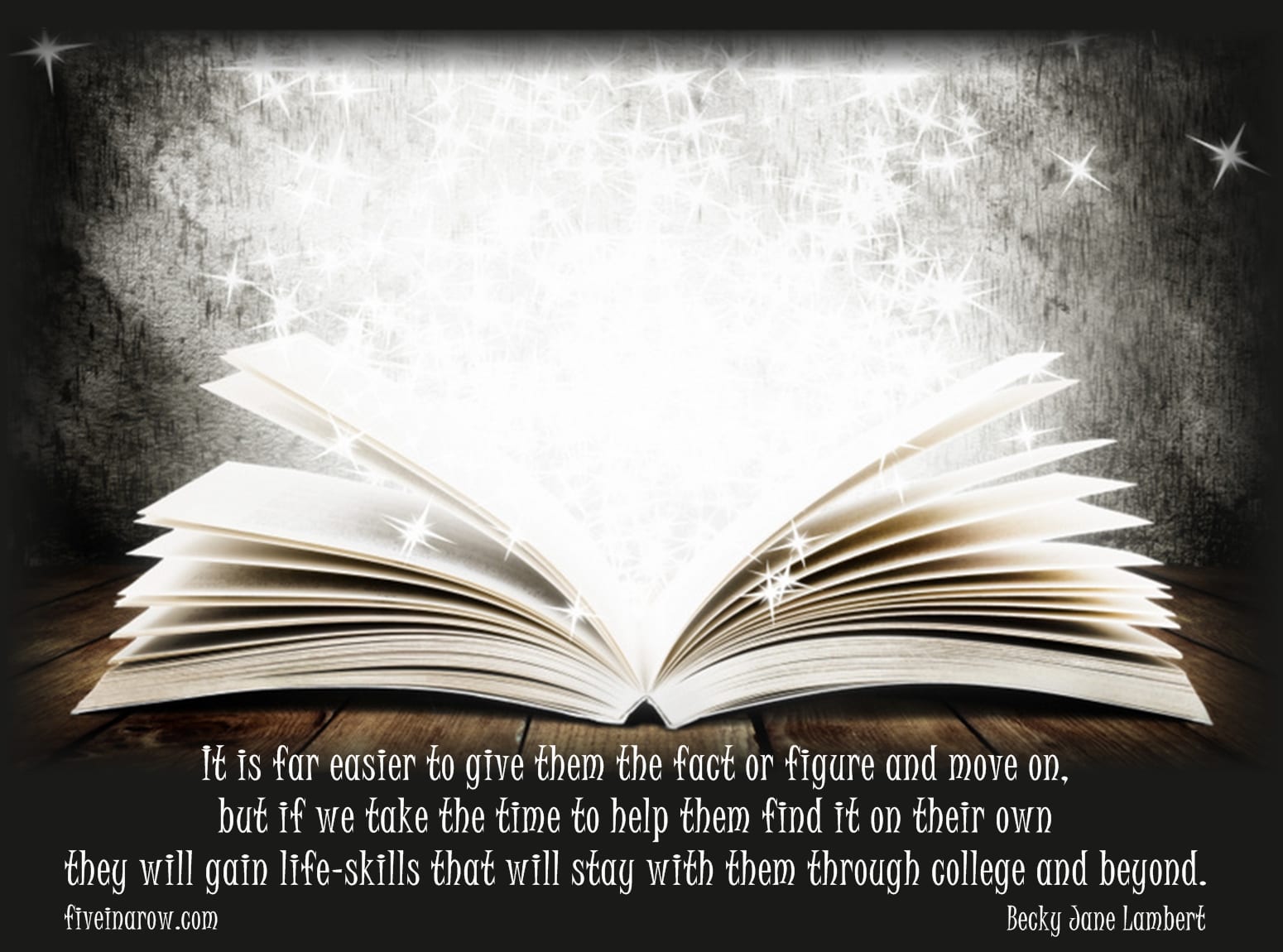One question parents consistently ask me is, “How can we help our children prepare for college?” There are many areas and subjects I could mention, but in this post I want to focus on increasing your student’s research skills.
When I am working on a unit study for one my books, I often spend over one hundred hours researching facts, figures, dates, stories, and background information. I feel blessed because I truly love doing research. It taps into my hidden dream to be Nancy Drew! I adore finding the answers to difficult questions. When I went to college I was amazed at the number of students in my classes who were unable to do their own research. Whether they were writing a paper or speech, or conducting a science experiment they were unprepared to find the information they needed. They did not know what resource books were available to them and they were not even confident to find simple books in a library. Their lack of research skills made their college experience extremely frustrating. I felt for them, and I was so thankful my mother and father had helped me learn how to find facts and information for myself.
 There are many ways to help your student hone his research skills. First, it might be fun to introduce a new “fact-finding” book each week. For example, does he understand the difference between a dictionary and thesaurus? Does he know about the Farmer’s Almanac and the types of facts he can find there? Is he familiar with books of quotations (i.e., Bartlett’s Famous Quotations) and how they can help him provide supporting quotes for his papers? Can he find simple biographical information on a person using an encyclopedia? Does he know where to go to find statistical information on a given subject? Can he operate the microfiche machine at the library and find articles in past magazines or newspapers?
There are many ways to help your student hone his research skills. First, it might be fun to introduce a new “fact-finding” book each week. For example, does he understand the difference between a dictionary and thesaurus? Does he know about the Farmer’s Almanac and the types of facts he can find there? Is he familiar with books of quotations (i.e., Bartlett’s Famous Quotations) and how they can help him provide supporting quotes for his papers? Can he find simple biographical information on a person using an encyclopedia? Does he know where to go to find statistical information on a given subject? Can he operate the microfiche machine at the library and find articles in past magazines or newspapers?
To help him learn about each of these resources, it might be fun to introduce a new research book each week over the course of month or two. After you talk about each book or resource, you can give him several facts to “find” using his new research tool. It can be set up like a treasure hunt with several clues leading to one final answer. Conducting research doesn’t have to be boring – it can be fun! Your student will feel so empowered and excited as he begins to learn how to find information for himself!
Of course, in today’s world we cannot discuss research without discussing the Internet. The Internet is a powerful research tool and can save immeasurable amounts of time, but it can also be a dangerous place for children if they aren’t supervised. I always advise parents to work with their children on the computer. And even though they can find nearly all of the same information from their home computer, I still encourage parents to teach their children how to use the library and traditional book resources. It is a valuable way of finding information and it will help them appreciate, utilize and enjoy the library so much more.
There are also apps and computer games on the market that help reinforce and encourage research skills. One of the best is the “Where in the World is Carmen Sandiego?” series. All of the games in that collection provide actual reference books the player must use to answer certain questions and solve the mystery. It is a fast-paced, exciting and fun way to build research techniques.
We have all heard the old adage, “Give a man a fish and you feed him for a day. Teach a man to fish and you feed him for a lifetime.” In this same way, I feel it is important we help our students learn how to find information for themselves. It is far easier to give them the fact or figure and move on, but if we take the time to help them find it on their own they will gain life-skills that will stay with them through college and beyond.
Blessings,




 Can I use Five in a Row with my Older Child?
Can I use Five in a Row with my Older Child?